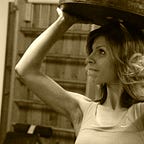The Upside of Vulnerability
How “bad genes” may actually make us stronger
Not long ago in rural Maryland, a mere 50 miles from the bustle of downtown D.C., there was a lab in which a scientist and a few hundred rhesus macaque monkeys, over five decades, turned out gobs and gobs of data to decode what, ultimately, makes us who we are. The monkeys are gone now but their legacy lives on in some of the most remarkable science behind genes and mothering, evolution, and mental health.
Two things make rhesus macaques particularly suited for the job of studying humans: they share 95 percent of our DNA and exhibit personalities, just like we do. Steve Suomi was the lab’s last chief scientist until it closed down in 2008. During his time, he saw generation after generation of monkeys whizz through life, buffeted by biology and circumstance. Suomi had a special interest in a type of macaques he called uptight: shy and fearful as infants, they’d grow into something rather similar to depressed human adults. Suomi wanted to know why. Was it nature or nurture? And what did that mean for us humans? Are some of us wired for suffering? Or is it life that twists us one way or another?
Vulnerability tips into disorder once a certain stress threshold has been passed.
